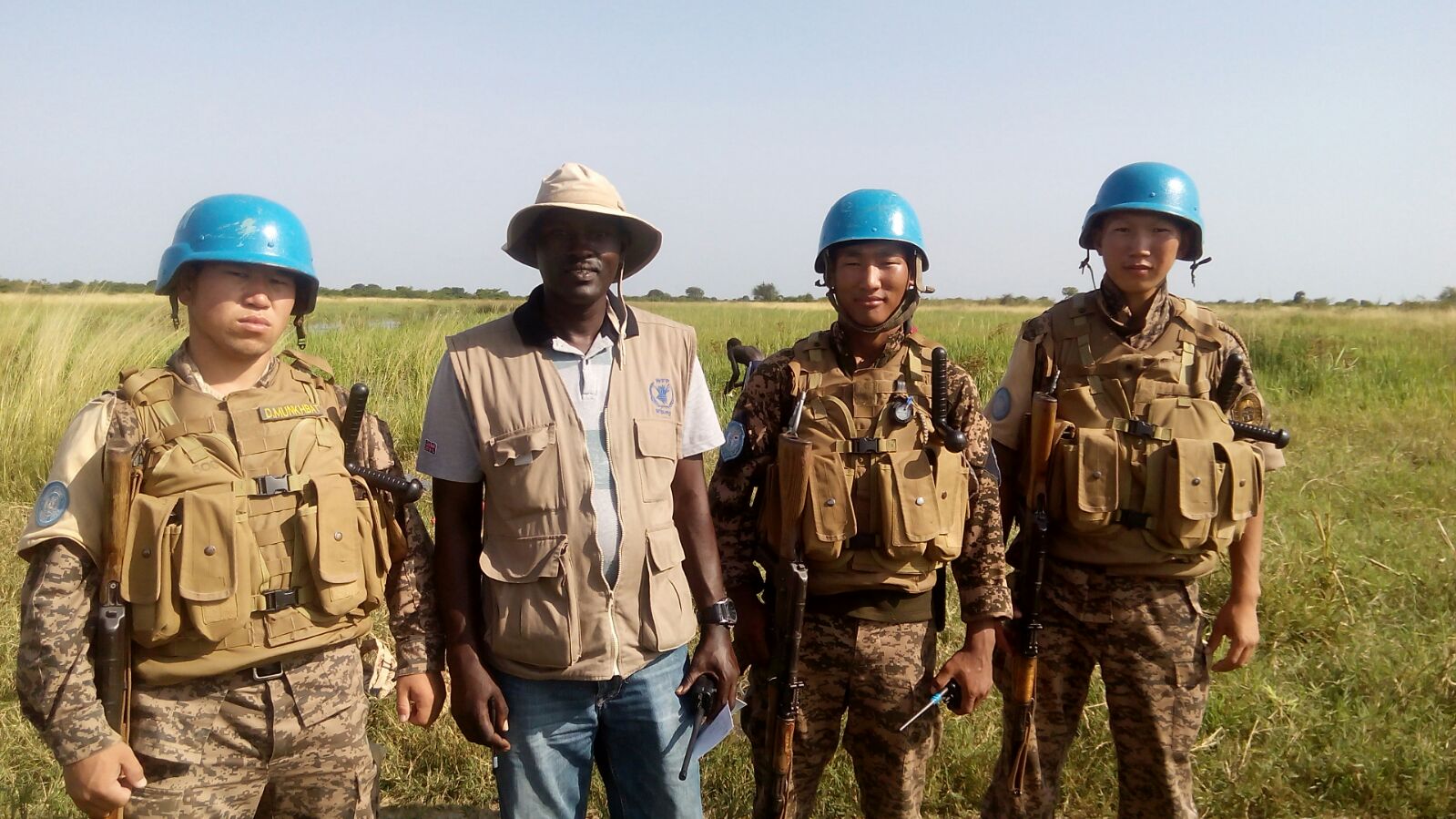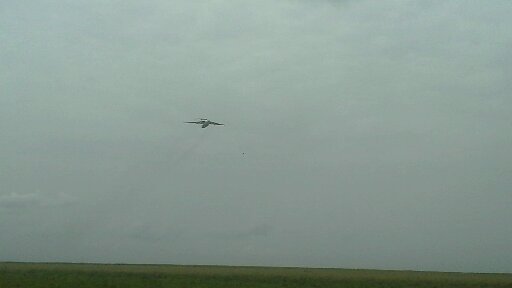South Sudan Lawrence Wambugu

I believe CTG’s work will help us build up a society that has a zero tolerance to hunger.
Safety is the most important aspect of all aviation operations, so a big part of my job is to observe the safety of the aircraft and the safety on the ground. I make sure the drop zone meets the required size and dimension to receive airdrops and is cleared from trees, houses, and bushes, and marked with white empty bags for a clear visual. I also manage logistics operations at the drop site, including coordinating with authorities to secure the drop zone in a safe manner and providing proper documentation for cargo hand over to the designated partner for food distribution purposes.
A typical day involves sending off the weather report to the aviation office and base radio room in the morning to give a clear picture of the site – the pilots solely depend on ground controllers to give accurate and timely weather updates in the morning and during the course of the day. I also monitor the general security situation prior to the departure of flights on a daily basis. If the security situation is stable, the airdrop and airlift flights are released from the operation base.
Food received is collected, reconstituted, and stacked for handover to the designated partners. I then liaise with logistics on food balances, flight notifications for the following day and update the local authority on the same. In the evening, I submit a subsequent report on the security situation to the base radio room.
As Kenya is one of the United Nations headquarters, field trainers were sent from Italy to conduct training on air operations in emergency situations. Prior to acting as Airdrop Coordinator during the field operations, each field staff completed a formal airdrop training course.
One day I was conducting food airdrops in Longechuk County. Intensive fighting between government troops and rebels started on a Sunday morning and we heard the sound of heavy guns from afar. The local authority informed the Emergency Response Team on the ground that the situation was under control, but a few hours later the fighting intensified sporadically, forcing the team to evacuate the area.
During the intervention period, all roads were impassable due to heavy rains, but we had no other option but to drive through. We got stuck several times in the bush until the car could not move anymore. The pulling winch developed some technical problems in the course of pulling the car. It was getting late in the evening and we had to overnight in the car cabin. At 8pm, three lions appeared from the bush and joined us. We were all scared and could not utter a word. We remained silent for two tense hours as they played with the car winch. We ran short of oxygen in the car cabin but had no option other than to run the car engine to get some fresh air. It was quite frightening!
The advice I would give to someone wanting to follow in my footsteps is that he or she should be committed, dedicated, and observe work ethics in this job. S/he should possess good organizational and planning skills, the ability to interpret and analyze a wide variety of data, be able to identify and resolve discrepancies and operational problems in high threat areas and should have initiative and good judgment.
S/he will also need the ability to resolve conflicts and have a clean accountable track record, be self-motivated with the ability to work effectively with people of different cultural backgrounds and be a rational decision-maker. Airdrop operation is a complex job that involves working in volatile areas in the most extreme situations where people are completely cut off or isolated from all channels of support. It requires a down to earth person who is focused – a do-or-die kind of a person with a lot of patience.
I’m proud to be working with emergency air operation response because it has significant goals and objectives. The operation has saved lives, protected livelihoods in emergency situations and supported food security and nutrition in fragile settings. We’ve reduced cases of malnutrition and we’re breaking the intergenerational cycle of hunger.
My feeling about the future of this country is that if we can’t end the conflict, hunger will be a permanent issue. This can only be achieved through everyone working together with Government, donors, non-governmental organizations and the United Nations to design the best way forward.
I believe CTG’s work will help us build up a society that has a zero-tolerance to hunger.
MORE STORIES ABOUT FOOD DISTRIBUTION
Nasra , East Africa
Monitoring & Evaluation Consultant
Abdulkadir Mohamed , East Africa
Team Leader
Mohammad Gul “Ghafoorzai”, Afghanistan
Cluster Coordinator



